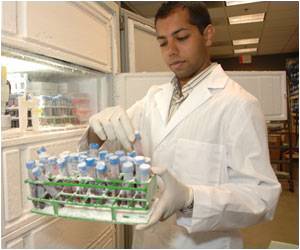Highlights
- New study identifies that treatment for autoimmune diseases, especially using the drug azathioprine increased the risk of therapy-related myeloid neoplasm.
- Therefore, it would be helpful to individualize drug selection and monitoring their effects during treatment.
- Also, there was no association between the length of time of drug exposure and the incidence of development of myeloid neoplasm.
These neoplasms are thought to be a direct consequence of events induced by cytotoxic, anti-infammatory and immunomodulating therapy.
Study
Researchers from Mayo Clinic analyzed more than 40,000 patient cases with 27 common autoimmune diseases from January 1, 2004, to December 31, 2014, such as Lupus, rheumatoid arthritis, among others.
They identified 86 patients with therapy-related myeloid neoplasm.
The results concluded that only azathioprine use was significantly associated with an increased risk of therapy-related myeloid neoplasm.
"Similar associations were already documented in case reports and case series, but have never been evaluated in a broad spectrum of autoimmune diseases in that many patients and in context of individual medications," says Raoul Tibes, M.D., Ph.D., senior author of the study and former director of the Acute and Chronic Leukemia Program at Mayo Clinic's Arizona campus. "Interestingly, there was no association with length of time on therapy and resulting myeloid neoplasm."
"This study, along with our current knowledge of therapy-related myeloid neoplasm, suggests that individualized drug selection and monitoring during treatment could be possible," says Natalie Ertz-Archambault, M.D., co-author of the study. "Future genomic profiling studies may help to identify patients at risk for myeloid neoplasms when exposed to azathioprine or other drugs," adds Dr. Tibes. Despite the findings, the researchers warned that the clinical judgments, monitoring and current standard treatments for patients with an autoimmune disease should not be changed or replaced at this stage.
Limitations
It was a retrospective study and many different autoimmune diseases were analyzed, each of which has the potential to interfere with the results.
In therapy-related neoplasms, only myelodysplastic syndromes and acute myeloid leukemia were assessed.
The overall number of patients with autoimmune disease developing myelodysplastic syndromes or acute myeloid leukemia is still low overall, and no prediction for individual patients can be concluded from the study.
In the next phase of the study, researchers plan to perform molecular investigations into the genetic susceptibility for therapy-related myeloid neoplasm.
The results are published in JAMA Oncology.
References
- Therapy-related myeloid neoplasms - (https://www.ncbi.nlm.nih.gov/pmc/articles/PMC2663607/)
- Raoul Tibes et al. Association of Therapy for Autoimmune Disease With Myelodysplastic Syndromes and Acute Myeloid Leukemia. JAMA Oncology ; (2017) doi:10.1001/jamaoncol.2016.6435
Source-Medindia















